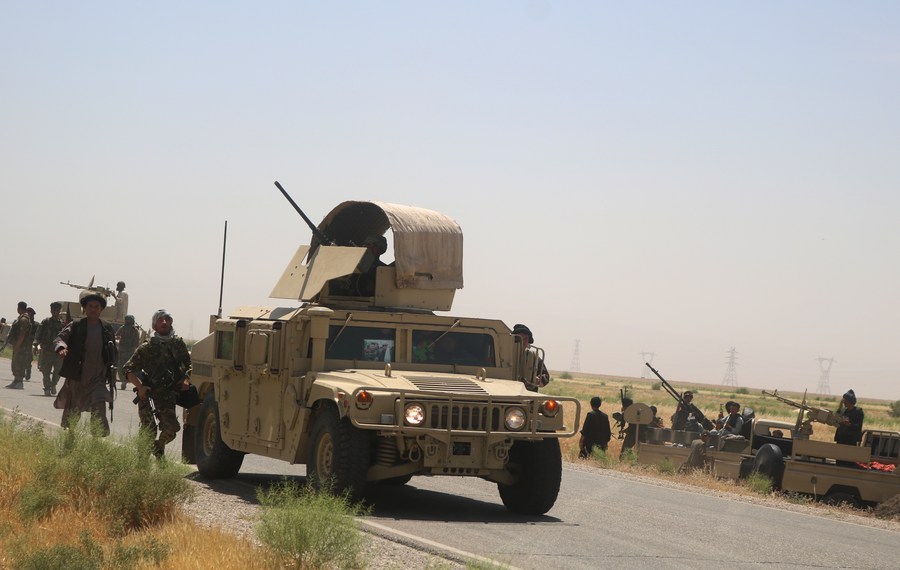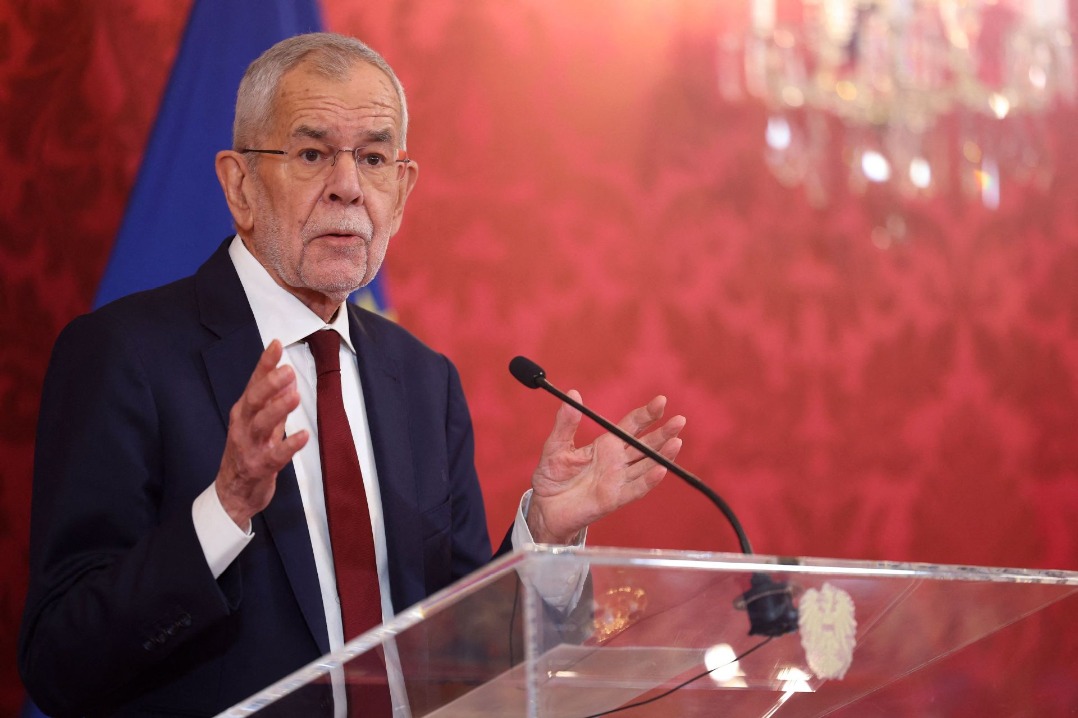US leaving Afghans with security hole


Irresponsible withdrawal spells more chaos for war-hit nation, experts say
The United States' withdrawal of its troops from Afghanistan-unfolding without careful consideration to the impact on security in the war-torn country-could leave behind more chaos, analysts said.
US President Joe Biden in April ordered a complete withdrawal of the country's troops from Afghanistan by Sept 11, the 20th anniversary of the terrorist attacks on New York and Washington that precipitated the US' so-called war on terror.
With more than 90 percent of the withdrawal completed, Biden said that the mission was to be concluded by August 31, more than one week ahead of the deadline.
For the US, the view is that a 20-year war is coming to an end. But for Afghanistan, the irresponsible withdrawal of the US military has left a huge "security hole "that is hard to fill, said Zhang Bo, a researcher from the Institute of West Asian and African Studies at the Chinese Academy of Social Sciences.
"If there is no proper arrangement, the irresponsible withdrawal of the US troops is likely to lead to the situation of Iraq in Afghanistan," said the scholar, referring to the deterioration in Iraq's security after the withdrawal of US forces.
The security vacuum left by the withdrawal in Afghanistan could provide the conditions for the development of extremist organizations, such as the Islamic State, Zhang said.
With no agreement in sight from multiparty peace talks, Afghanistan may "once again fall into a long-term civil war", leading to more refugees and a worsening of other humanitarian problems, the scholar added.
The US termed its mission in Afghanistan a defensive maneuver against terrorists, and the mission was supposed to bring peace to Afghanistan and help the Afghans establish a stable society.
However, the most conservative estimates by local and international rights groups suggest that close to 47,600 civilians have been killed and more than double that number injured in Afghanistan during the 20 years of war, according to figures from the Watson Institute of International and Public Affairs at Brown University.
Taliban militants have also been more active since the withdrawal of the US troops at the beginning of May, resulting in the deteriorating security situation in Afghanistan.
According to a Taliban source, the group now controls 85 percent of Afghanistan's territory, or more than 170 districts.
The Afghan government's security forces are fighting back against the Taliban.
In latest developments, at least 40 Taliban militants were killed in multiple airstrikes launched by the Afghan Air Force on Sunday, the country's Ministry of Defense said on Monday.
Chinese Foreign Ministry Spokesperson Wang Wenbin said on Friday that the US, disregarding its responsibilities and obligations, is hastily withdrawing from Afghanistan, leaving behind a mess and turmoil for the Afghan people and those in neighboring countries.
An article published by the Gulf News on Thursday said the US' involvement in Afghanistan has "brought nothing but destruction and chaos to region", and the bitter legacy "will be felt for decades to follow".
No palpable progress
It could be a case of better late than never for the US to mend its way to pursue a "responsible withdrawal", Zhang said.
"The US should fully consult and cooperate with relevant parties in Afghanistan, its neighboring countries and other stakeholders in a timely manner to share relevant information," he added.
The US and the Taliban signed a peace deal in February last year, calling for a gradual withdrawal of the US troops on condition that the Taliban cut ties with terrorist groups.
With vicious fighting still a daily occurrence following the deal, negotiations between the Afghan government and the Taliban, including the latest round in Iran, have made no palpable progress.
"Washington should also support all international efforts that are conducive to the peace, stability and development of Afghanistan, and help the suffering people in political reconciliation, security and stability, and economic reconstruction," Zhang said.
Xinhua contributed to this story.































